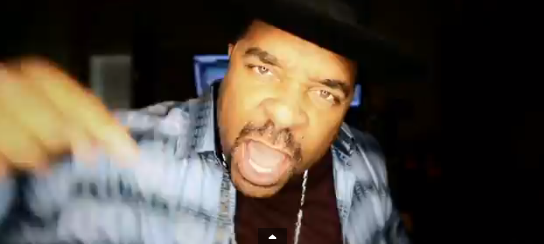Click above to listen in your browser or download the podcast directly (MP3, 24 MB, 50 minutes). Subscribe to the show’s podcast feed to get every episode automatically.
Sir Mix-A-Lot, a.k.a. Anthony Ray, may have become best known for “Baby Got Back“
over 20 years ago, but his career spans nearly 30 years, and he’s never
stopped trying to create a genuine connection with his fans. He’s a
singer, songwriter, producer, actor, technologist, and car aficionado.
He runs the independent label Rhyme Cartel. Find him on Twitter @therealmix.
Sponsors
The New Disruptors is made possible through the help of our sponsor: ZipRecruiter. Please let them know we sent you by following the link.
Show Notes
Macklemore and Ryan Lewis is one
of the biggest acts out of Seattle in the last 30 years. Mix had
something cooking with Lewis when we spoke, which was an appearance in the video for White Walls in early September.
A couple of years ago, Anthony’s “Carz” video topped 1.2 million views on YouTube. Anthony drops in with his wheels to Exotics at Redmond Town Center every week.
I spoke with Jack Conte of Pomplamoose (with Nataly Dawn) and Patreon in “Pompla Up the Volume” (Episode 39). The original Dragnet movie, before the series, was so incredibly square that it was hip.
“Baby Got Back” was pulled from MTV for its sexual content, which turned it into a hit. I wrote about Jonathan Coulton’s version of “Baby” being copied by the TV show Glee for the Economist, and he and I talked about that and a lot more in “Baby Got Back Catalog” (Episode 16, March 2013). Mix made a sort of self-parody response to “Baby” about men called “Big Johnson.”
Patty and Mildred Hill were pioneers in early childhood development in the late 1800s, and wrote the music (but not lyrics) for what became “Happy Birthday to You.” Mildred is believed to have written an essay (PDF link)
under the name Johann Tonsor that in 1893 predicted that
African-American music as it had developed would form the basis of “a
distinctively American music.” (Warning to readers: the essay is a
product of its time in terms of its racial descriptions.)
Dust to Digital recovers music from 78 rpm records and produces glorious curated collections. Its Opika Pende was nominated for a Grammy, and collects music from Africa from 1909 to the 1960s.

